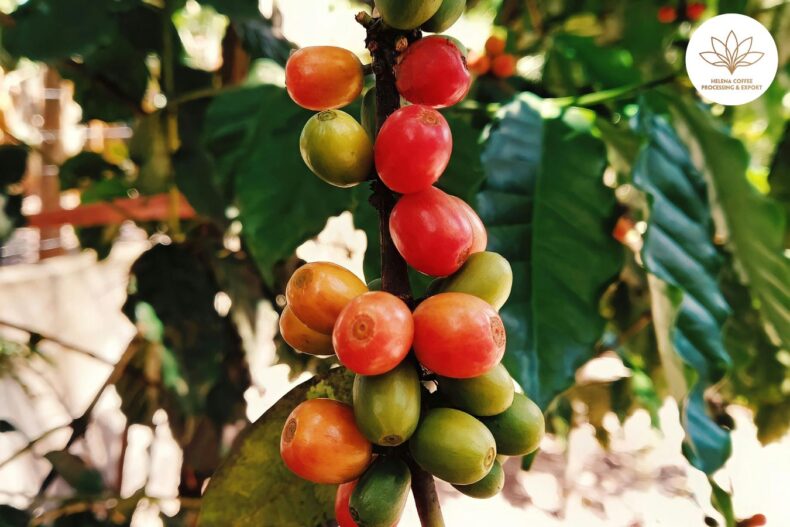
Are you a coffee lover searching for a unique and flavorful brew? Look no further than specialty Ethiopian coffee beans. These beans are renowned for their distinct taste, aroma, and origin, and they’re a must-try for any coffee enthusiast.
This article will explore everything you need about specialty Ethiopian coffee beans, from their history to the flavor profile, brewing techniques, and more. So please grab a cup of coffee, and let’s dive in!
History of Ethiopian Coffee
Ethiopia is widely considered the birthplace of coffee, with a rich coffee cultivation and consumption history that dates back to the 10th century. Legend has it that a goat herder named Kaldi discovered the coffee plant when he noticed his goats became unusually lively after eating the plant’s cherries. Kaldi shared his discovery with monks, who began brewing coffee as a stimulant during long religious ceremonies.
Over time, coffee spread throughout Ethiopia and beyond, becoming vital to the country’s economy and culture. Today, Ethiopia is one of the world’s top coffee producers, with a strong reputation for producing some of the most unique and high-quality coffee beans on the market.
Varieties of Ethiopian Coffee
Ethiopia is home to diverse coffee varieties, each with its distinct flavor profile. Some of the most well-known types of Ethiopian coffee include:
- Harrar: grown in the eastern highlands of Ethiopia, Harrar coffee beans are known for their complex, fruity flavor and distinctively earthy aroma.
- Sidamo: grown in the southern region of Ethiopia, Sidamo coffee is known for its light and floral flavor, with notes of berries and citrus.
- Yirgacheffe: grown in the central highlands of Ethiopia, Yirgacheffe coffee beans are prized for their bright, floral aroma and complex flavor profile, which often includes notes of citrus, honey, and chocolate.
Flavor Profile of Specialty Ethiopian Coffee Beans
What sets Ethiopian coffee apart from other varieties is its unique flavor profile. Ethiopian coffee beans are typically medium-bodied with a bright, acidic flavor and a fruity, floral aroma.
Depending on the type, you may taste notes of berries, citrus, chocolate, or even wine. The flavor of Ethiopian coffee can be described as complex and nuanced, with a lingering sweetness that sets it apart from other coffee beans.
Brewing Techniques for Specialty Ethiopian Coffee Beans
To fully appreciate the unique flavor of Ethiopian coffee, it’s essential to use the proper brewing techniques. Here are some tips to get the most out of your specialty Ethiopian coffee beans:
- Use a light roast: Ethiopian coffee beans are typically roasted to a light or medium roast to preserve their unique flavor profile. Avoid dark roasts, which can overpower the coffee’s delicate flavors.
- Use fresh, filtered water: high-quality water is critical to making great coffee. Use filtered water heated to the appropriate temperature for your brewing method.
- Experiment with brewing methods: Ethiopian coffee beans can be brewed in various ways, including pour-over, French press, and espresso. Experiment with different strategies to find the one that best highlights the coffee’s unique flavors.
Sustainability and Ethics of Ethiopian Coffee Farming
As demand for specialty Ethiopian coffee beans grows, it’s essential to consider the sustainability and ethics of coffee farming in Ethiopia. Many coffee farmers in Ethiopia face low prices, climate change, and a lack of infrastructure. However, initiatives are in place to promote sustainable and ethical coffee farming practices, such as Fair Trade and Rainforest Alliance certifications.
Fair Trade certification ensures that coffee farmers receive reasonable prices for their beans and that workers are treated ethically. Rainforest Alliance certification promotes sustainable farming practices that protect the environment and support local communities.
By buying specialty Ethiopian coffee beans certified by these organizations, you can help support sustainable and ethical coffee farming practices in Ethiopia.
The Benefits of Supporting Small-Scale Coffee Farmers in Ethiopia
Supporting small-scale coffee farmers in Ethiopia can have a significant positive impact on the local economy and environment. Small-scale farmers make up the majority of coffee producers in Ethiopia and often struggle to make a living due to low prices and limited access to resources.
By purchasing coffee beans directly from small-scale farmers or through Fair Trade and Direct Trade channels, consumers can help support sustainable and ethical farming practices while ensuring that farmers receive fair prices for their crops.
In addition to supporting local communities, buying from small-scale farmers can promote environmental sustainability. Many small-scale farmers use traditional farming methods that prioritize soil health and biodiversity, which can lead to healthier ecosystems and more resilient crops in the long term.
The Role of Women in Ethiopian Coffee Farming
Women play a significant role in Ethiopian coffee farming, from planting and harvesting coffee beans to managing finances and household tasks. However, women in the coffee industry often face gender-based discrimination and limited access to resources and education.
Organizations such as the International Women’s Coffee Alliance and the Partnership for Gender Equity are working to address these challenges and promote gender equality in the coffee industry.
By supporting organizations that promote women’s rights and access to resources, consumers can help promote gender equality and empower women in the coffee industry.
Exploring the Genetic Diversity of Ethiopian Coffee Varieties
Ethiopia is home to many coffee varieties, many unique to the country. These varieties are known for their distinct flavor profiles and genetic diversity, which can make them more resilient to disease and climate change.
Recent research has shown that Ethiopia’s coffee varieties have a complex genetic makeup, including wild and cultivated coffee plants. By exploring the genetic diversity of Ethiopian coffee varieties, researchers and coffee farmers can better understand how to develop and protect these unique plants in the face of environmental and economic challenges.
The Rise of Specialty Coffee Shops in Ethiopia
In recent years, there has been a rise in specialty coffee shops in Ethiopia, particularly in the capital city of Addis Ababa. These shops offer high-quality coffee beans from various regions and producers, unique brewing methods, and specialty drinks. By promoting the culture of specialty coffee in Ethiopia, these shops are helping to raise awareness of Ethiopian coffee’s unique flavors and cultural significance.
The Art of Ethiopian Coffee Ceremony
The Ethiopian coffee ceremony is a traditional ritual that involves roasting, brewing, and serving coffee in a communal setting. A woman typically leads the ceremony, and can last several hours as guests gather to share coffee and conversation.
The ceremony symbolizes hospitality and community in Ethiopian culture and is often seen as a way to unite people and strengthen social ties. By exploring the art of the Ethiopian coffee ceremony, coffee enthusiasts can gain a deeper appreciation for the cultural significance of coffee in Ethiopia.
The Future of Direct-to-Consumer Ethiopian Coffee Sales
As the global coffee market continues to shift towards direct-to-consumer sales, Ethiopian coffee producers are exploring new ways to connect with consumers and promote their unique products. Direct-to-consumer sales can offer a variety of benefits for both producers and consumers, including increased transparency, higher profits for farmers, and access to unique and high-quality coffee beans.
By embracing direct-to-consumer sales and promoting transparency and sustainability in their farming practices, Ethiopian coffee producers can help ensure the long-term viability of the coffee industry in Ethiopia while also providing consumers with a unique and flavorful brew.
The Future of the Specialty Ethiopian Coffee Beans
As the demand for high-quality coffee continues to grow, the future of the Ethiopian coffee industry looks bright. However, the sector still faces climate change, disease, and competition from other coffee-producing countries.
To address these challenges, coffee farmers and industry leaders are working to promote sustainable and ethical farming practices, increase access to education and resources, and explore new varieties of coffee.
Where to Buy Specialty Ethiopian Coffee Beans
If you’re interested in trying specialty Ethiopian coffee beans, there are a few places to look. Many specialty coffee shops and roasters offer Ethiopian coffee beans, as well as online retailers.
Some popular brands of Ethiopian specialty coffee include:
- Blue Bottle Coffee: offers a variety of Ethiopian coffee beans, including Harrar and Yirgacheffe.
- Intelligentsia Coffee: offers several Ethiopian coffee varieties, including Yirgacheffe and Sidamo.
- Counter Culture Coffee: offers a range of Ethiopian coffee beans, including single-origin and blended varieties.
Conclusion
Specialty Ethiopian coffee beans offer a unique and flavorful brew that’s a must-try for any coffee enthusiast. From their rich history to their distinct flavor profile and sustainable farming practices, there’s a lot to appreciate about Ethiopian coffee.
By understanding the varieties and brewing techniques of Ethiopian coffee and the sustainability and ethics of coffee farming in Ethiopia, you can fully appreciate the unique flavors and cultural significance of this distinctive brew.
FAQs
- What makes Ethiopian coffee unique? Ethiopian coffee is known for its distinct flavor profile, which includes bright acidity, fruity and floral aromas, and complex flavor notes such as berries, citrus, and chocolate.
- What is the best way to brew Ethiopian coffee? The best way to brew Ethiopian coffee depends on personal preference, but some popular methods include pour-over, French press, and espresso.
- Are there ethical and sustainable options for buying Ethiopian coffee? Yes, certifications such as Fair Trade and Rainforest Alliance ensure that coffee farmers are treated fairly and that sustainable farming practices are followed.
- What are some popular varieties of Ethiopian coffee? Some popular varieties of Ethiopian coffee include Harrar, Sidamo, and Yirgacheffe.


